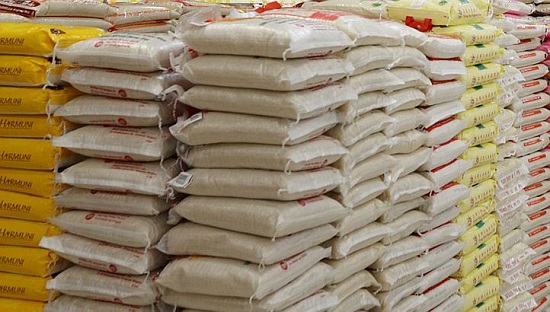This post has already been read 4892 times!
Nigeria will produce less rice in the coming year, data from the United States Department of Agriculture have shown.
The data projected that Nigeria’s rice production will drop from $2.48bn to $2.40bn in 2019.
Nigeria’s earnings from local rice production in the past three years had been on an ascending order, increasing from $2.40bn (5.3 million metric tonnes) in 2016 to $2.46bn (6.15metric tonnes) in 2017 and $2.48bn(6.8metric tonnes) in 2018.
According to the report, total amount spent on imports also increased from $1,95bn in 2016 to $2.54bn in 2017 and $3.02bn in 2018.
The amount is, however, projected to go down to $2.7bn in 2019.
Global commodity prices for rice averaged $450 in 2016, $400 in 2017 and $360 by November 2018, according to data obtained from Index Mundi.
The price is projected to be $365 in 2019.
Rice consumption in Nigeria is above seven million metric tonnes annually.
In October, the Minister of Agriculture and Rural Development, Chief Audu Ogbeh, warned that Nigeria might experience a shortage in rice production due to the flash flooding that affected some major rice-producing states that month.
“We are hoping that as soon as the rains seize, we are encouraging farmers to replant so that the residual moisture on the soil plus irrigation can give us another crop by the end of December or early January.
“Otherwise, we will be in serious trouble for rice, millet, sorghum and maize next year,” he said, during the inauguration of the National Agricultural Seed Council Molecular Facility and the 2018 Seed Fair and Farmer’s field day.
Only eight out of the 36 states of the federation can be considered heavy producers of rice. They are Anambra, Nassarawa, Ebonyi, Kaduna, Niger, Kano, Kaduna and Benue.
According to the former Chairman of the Export Group of the Nigerian Association of Chambers of Commerce and Industry, and former Head, Government Relations, Olam, Mr Ade Adefeko, the rice producers in Nigeria have to overcome great challenges to meet the market demands.
He listed one of the challenges as the inadequate irrigation techniques, saying that low levels of technologies could not result in a high yield.
The Director-General, Lagos Chamber of Commerce and Industry, Mr Muda Yusuf, also noted that the agriculture sector was still dominated by smallholder farmers who were challenged by poor funding, lack of technology, insufficient power and other factors.
[Punch]



